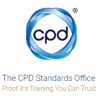
Debt awareness week
26 March 2024
Debt can feel like a huge burden, especially if you’re carrying it alone. But with the right support and tools, you can overcome it. Barclays Money Mentors® are here to help.
Debt awareness
For some people, just hearing the word ‘debt’ can send shivers down their spine.
Debt doesn’t only affect people on low incomes. Many people in the UK are just one emergency away from falling into financial difficulty. With the everyday costs rising, financial resilience has become more important than ever. Debt comes in many shapes and sizes: overdrafts, credit cards, student loans, mortgages, car loans just to name a few.
It’s essential to understand that not all debt is bad.
You could consider student loans and mortgages to be a future investment. Helping to create a pathway to financial freedom. Alternatively, excessive debt can lead to financial stress and worry. In the long term this could cause damage to your credit report, limiting your opportunities for the future.
No matter what your current position with debt is, it’s important to have steps in place to make sure any debts you do have are manageable.
Top tips for tackling debt

Knowledge is power: The first step is to know exactly what you owe
Sit down and create a list of all your debts, include balances, interest rates, and minimum payments. This simple activity can help you gain understanding and control over your financial situation. The first time may feel a little daunting but reviewing this regularly can help maintain control. This could be every six months, three months or monthly, choose what works best for you.
Budget: Creating a budget is like having a roadmap for your money
Set up a plan for your essential bills like rent, food, utilities and any debt repayments. Have a look at ways you could reduce non-essential spending and use these funds to pay off the debt quicker. For more help with budgeting, check out our NEW money learning modules.
Know your interest rates: Not all debts are created equal
List your debts in order – highest to lowest interest rate. Now you can see what debt is costing you the most and pay it off as a priority. Make sure to keep paying off the at least minimum payments on the other debt. Once you’ve paid off the most expensive, you can switch to the second most expensive.
While you’re researching interest rates, have a look to see if you qualify for a 0% balance transfer on credit cards, this will mean more of your monthly payment would go towards paying off the debt, rather than the interest (make sure you review the terms and conditions for any balance transfer, there could be unexpected costs).

Help is available: If you’re feeling overwhelmed by debt, don’t wait to seek help
Reach out to your bank or financial institution to find out what they can do to help you.
Debt advice will not impact your credit score, although some debt solutions will, and is often free in the UK. Debt advice could provide you with the reassurance and support you need to be able to get out of debt. Remember, you’re not alone. There are resources available to support you on your path to financial stability. Our Money Management page on Barclays.co.uk has some useful help and support.

Stay positive and keep going forward: becoming debt free is a marathon, not a sprint
It can be hard to stay motivated, so set small, achievable goals. Don’t forget to celebrate small victories along the way. Surround yourself with a support network of friends and family you feel safe to talk to. Debt can have a significant impact on mental health and wellbeing so make sure you have someone to talk to.
Final thoughts
Debt can feel like a huge burden, especially if you’re carrying it alone. But with the right support and tools, you can overcome it!
Remember, it’s okay to ask for help.
Take control of your future and pave the way to financial freedom.
Barclays Money Mentors® don’t provide specific, personalised financial advice. Individual circumstances can vary, so we recommend that you get professional advice if you need it.

